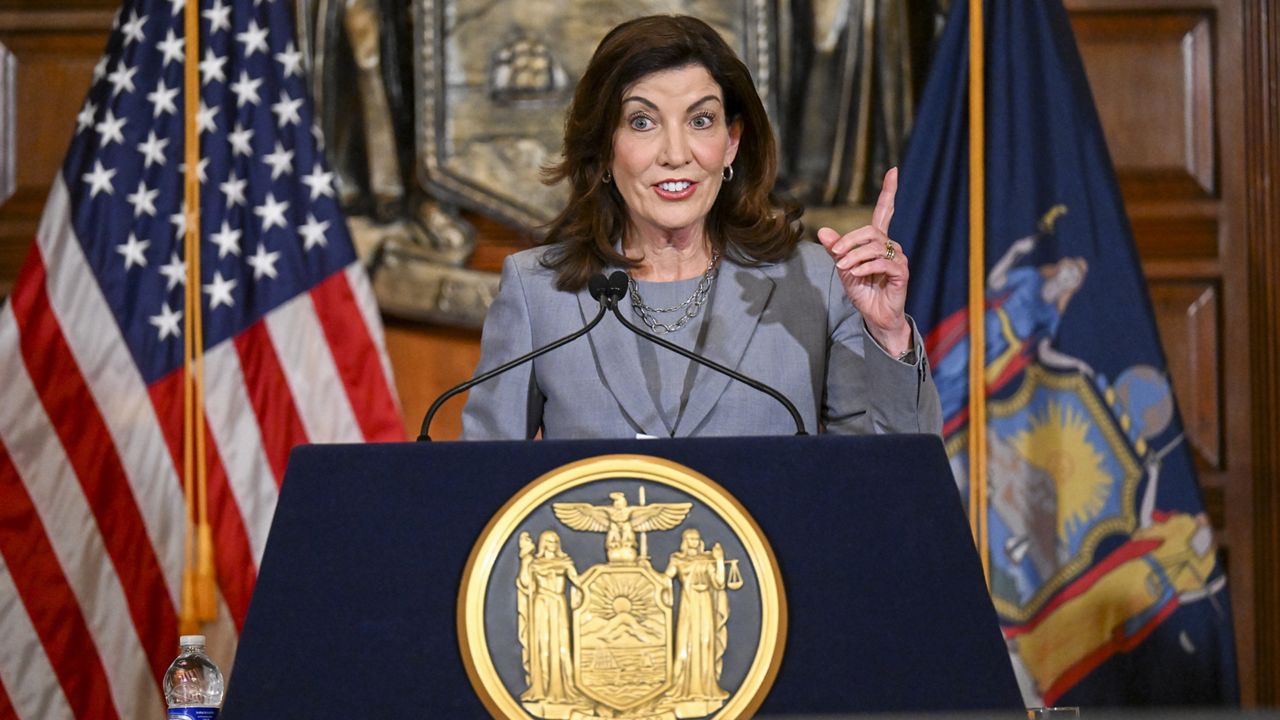New York state's $229 billion budget is setting aside $1 billion in additional funding to address a broad array of mental health care needs in the wake of the COVID-19 pandemic.
The money, touted by Gov. Kathy Hochul in Buffalo on Monday, is being highlighted as New York officials and advocates are making a renewed focus on the issue after the death of a Black man on a New York City after he was held in a chokehold.
Hochul sought to frame the funding in the budget as addressing a range of issues, from social media to depression and homelessness. Hochul called the issue a problem that had been ignored for too long.
"We ignored everybody — just sweep it under the rug until they go away," she said. "Now, we have a crisis."
Her appearance in Buffalo highlighting the money came days after Jordan Neely died after being held in a chokehold on the subway in New York City. Neely, who was homeless, was reportedly struggling with mental health issues.
Daniel Penny, the man who restrained Neely and a retired Marine, is yet to face charges in the case.
Hochul called Neely's death "a wake up call" for public officials to address mental health needs.
The Neely case has exposed a fault line for both sides of the political aisle and the debate over homelessness, race and mental health as well as public safety.
"Our conference has continually called for better investment in mental health services and restoring public safety - both played a role in this horrible tragedy," said Republican state Senate Minority Leader Robert Ortt. "Rather than weighing in on behalf of someone with 40 + arrests or calling for the indictment of a US Marine, politicians should focus on fixing these issues and let the justice system play out as it’s intended to."
Senate Health Committee Chairman Gustavo Rivera, a Bronx Democrat, called Neely's death "a murder."
"As I understand it, this was not the first time that Mr. Neely was at this station and in distress, yet emergency services had repeatedly failed to truly help him," Rivera said. "Regardless, no person deserves to have their life taken away. What Mr. Neely needed was care, not punishment."
The governor on Monday, meanwhile, pointed to expanded efforts to address mental health needs, including freeing up more hospital beds as well as expanding housing.
"More beds online, outpatient services, freeing up needed space for care," she said.
Hochul wants 3,500 units of housing for people struggling with mental health issues and homelessness.
"Housing not living in a hospital bed, not living on the streets, but living in a home," she said.
This spring, Hochul's administration is holding a series of public forums on youth mental health for young people struggling with the aftermath of the pandemic.
New York officials have struggled with how to address the issue.
Last year, Hochul and New York City Mayor Eric Adams announced the addition of more police officers and outreach counselors on mass transit. At the same time, efforts to have people involuntarily hospitalized have been challenged by civil liberties groups.
A proposal this year to reduce the chances of police interacting with people struggling with mental illness was rejected in the state budget. The measure, named after Daniel Prude, a Black who died in the custody of the Rochester Police Department, would have created mental health units to respond to people in crises.
Instead, lawmakers and Hochul agreed to the creation of a commission composed of mental health experts to study the issue, with a report due by the end of 2025.



